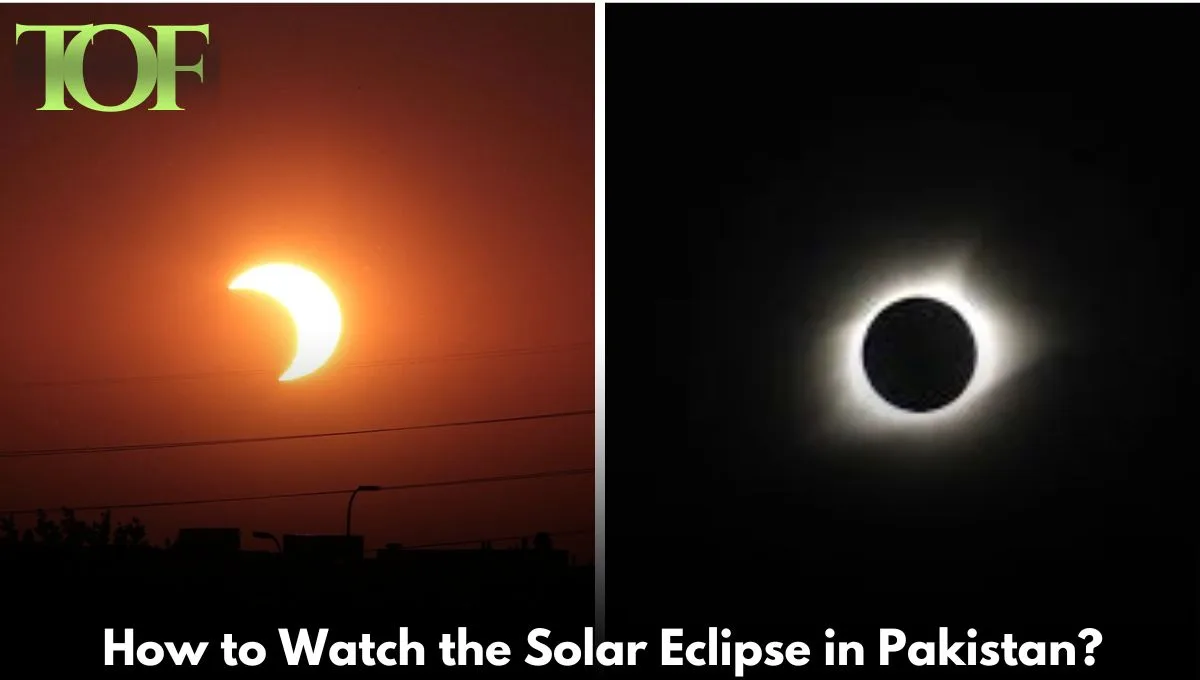An annular solar eclipse on the 2nd of October in the year 2024 will illuminate the skies – a marvelous “ring of fire” should appear, as observed from parts of the Southern Hemisphere. That is because, at this specific juncture in its orbit, the moon is a bit beyond Earth, so it simply can’t cover the sun altogether. But this phenomenon also leaves another consequence: a bright ring of sunlight surrounds the dark silhouette of the moon so that the eclipse takes on its characteristic appearance. The Solar Eclipse cannot be seen from Pakistan but people can watch it on live stream.
When and Where to See the Eclipse
The annularity course will be seen over regions in the Pacific Ocean, Patagonia, including parts of southern Chile and Argentina, and the Atlantic Ocean. Though huge portions of South America will see a partial eclipse, the full annular eclipse will only be visible in a narrow band.
It could be a good opportunity for the people of Easter Island (Rapa Nui), Chile, and Argentina to view it from almost unobstructed views. According to timeanddate.com, the eclipse will start at 11:43 a.m. EDT (1543 GMT) with the first appearance of the annular phase by 12:50 p.m. EDT (1650 GMT). The maximum eclipse-the ring of fire- would happen at 2:45 p.m. EDT (1845 GMT).
Key Viewing Times and Locations
Following are the timings at which the annular phase will be visible to those along the path.
- Easter Island, Chile: 2:03 p.m. local time (EASST),11:03 p.m. (PST), Duration: 6 minutes, 28 seconds
- Cochrane, Chile: 5:21 p.m. local time (CLST), 2:21 a.m. (PST), Duration: 5 minutes, 54 seconds
- Puerto Deseado, Argentina: 5:27 p.m. local time (ART), 2:27 a.m. (PST), Duration: 3 minutes, 22 seconds
Aside from these prime viewing locations, a live stream will give people around the world a chance to witness this celestial spectacle. The ring of fire will be most visible from Easter Island from 3:03 to 3:09 p.m. EDT (12:03 a.m. to 12:09 a.m. PST), and later from southern Chile and Argentina from 4:18 to 4:31 p.m. EDT (1:18 a.m. to 1:31 a.m. PST October 3).
Safety First: Eye Protection
Note that even during an annular solar eclipse, it’s not safe to view the sun without proper eye protection. Special solar eclipse glasses are the only safe way to view the event. Sunglasses are not okay for viewing this phenomenon.
The Science of the Eclipse
Annular eclipses happen and not total eclipses due to this reason. Earth happens to be nearer or farther from the moon at certain times. The orbit of the moon is elliptical, and hence, during these periods, it appears smaller. In the case of the October 2 eclipse, this will be one of the periods when it is a distance greater from Earth; thus, the parts of the sun at the outer edges will appear, forming a brilliant ring of fire.
This rarely occurring and awe-inspiring phenomenon serves as a reminder of the complex motion of celestial objects and their beautiful effect on the heavens above.
If you can’t be there in person to enjoy the eclipse, don’t be discouraged. Space.com will be bringing it live to you. Mark your calendars, and you won’t want to miss seeing one of the most spectacular natural events known to mankind.
To Read More: Technology

